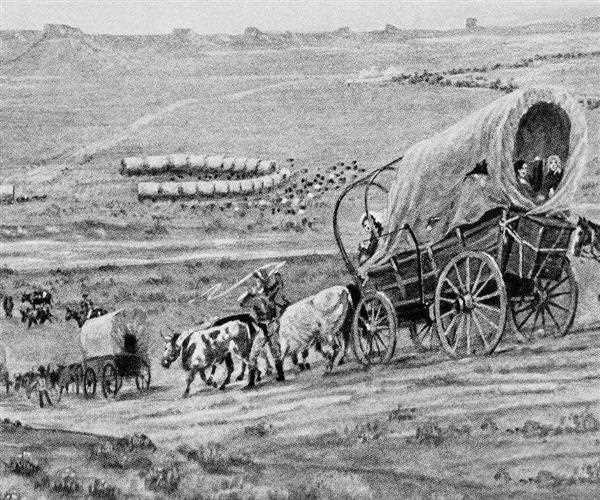*Manifest Destiny*

It was the conviction that the United States was bound to stretch out its region to the Pacific Ocean. The expression was authored in 1845 by magazine supervisor John O'Sullivan.
For what reason did Americans bolster show predetermination? Southerners wanted more land for cotton generation and Northerners trusted development would ease populace weights in the swarmed urban focuses of the Northeast.
A few Americans were against show fate in light of the fact that different countries (Mexico and Great Britain) guaranteed the land and on the grounds that they felt an extensive country would be too vast to oversee. Abolitionists dreaded new domain would grow bondage.
The Mexican War
On May 9, 1846, Mexican troops crossed the Rio Grande and assaulted a U.S. Watch. The fretful Polk had been sitting tight for simply such an occurrence to legitimize an announcement of war. Congress announced war on May 13, 1846.
A few Americans condemned the War. They charged that Polk was endeavoring to obtain more slave an area and that America was the genuine assailant. They called the war "Mr. Polk's War." Lincoln, Henry David Thoreau, and Frederick Douglass all addressed American goals. Be that as it may, most Americans, particularly westerners and southerners, completely bolstered the war, and young fellows hurried to enroll.
By September 1847, U.S. powers were responsible for California and New Mexico. General Zachary Taylor's troops involved a lot of northern Mexico and Mexico city was possessed by the troops of General Scott.
The War finished in February 1848 with the arrangement of Guadalupe Hidalgo. The triumphant U.S. directed the terms of the arrangement which constrained Mexico to surrender a territory to the extent of Spain, France, and Italy consolidated: 525,000 square miles.
Mexico surrendered all cases to Texas and surrendered a huge domain known as the Mexican Cession. The region in the Mexican Cession, in the long run, turned into the present day conditions of Nevada, Utah, and parts of Arizona, Colorado, New Mexico, and California. The U.S. consented to pay Mexico $15 million and assume control installment of the harms guaranteed by Americans against Mexico.
The U.S. guaranteed in the Treaty of Guadalupe Hidalgo to allow full citizenship rights to Mexicans living in the Mexican Cession, and to regard religious convictions and property rights. With the Gadsden buy in 1853 (a segment of land in southern Arizona and New Mexico), the U.S. had obtained the majority of Mexico's domain north of the Rio Grande.
Americans who settled in the new regions did not regard the privileges of 80,000 Mexicans living there. A large number of them lost their territory and property and were changed from prosperous landowners into poor workers in mines, or on railways. Numerous progressed toward becoming field hands. The Mexican government was broken by the thrashing and could do little to ensure the privileges of its previous natives aside from challenge.
The Mexican government was extremely precarious after the war and Mexico started to center around its interior battles as opposed to on its entrance into the world commercial center. Mexico additionally attempted to keep any further loss of its domain to the substantially more intense United States.
Mexican culture was a mix of Spanish and Indian societies, and numerous Americans looked down on it. Preference and segregation prompted Mexican American uprisings in the Southwest. In any case, Mexican Americans assumed imperative parts in the economy of the Southwest and their work empowered others to flourish.
Cheers!